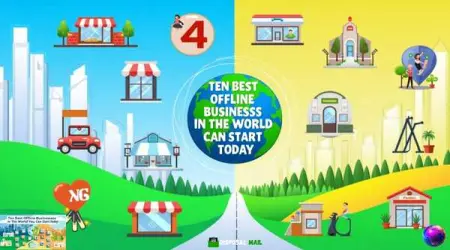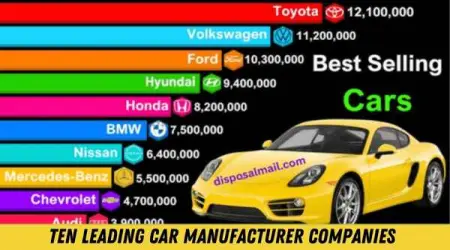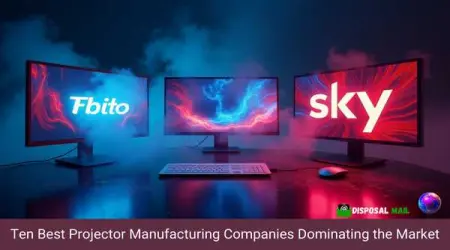Top Ten Powerful CMS Platforms To Build Business Site

More Knowledge About CMS
Several companies require content review and modification without proficiency in technology under a Content Management System (CMS), as in CMS in 2025. CMS enabled the creation of interactive, adaptable, and easy-to-use websites, which makes it almost essential today.
URL Shortener, Short Link, QR Codes & More
Importance of CMS to Organizations
The businesses control the content, and the designs and other technologies become secondary aspects due to CMS, which is highly adaptable, cost-effective, and capable of expanding with the business itself.
Critical Factors to Look at When Selecting the Best CMS
User Friendliness: How simple is it for the user to operate the platform?
Customisation: Is it possible to modify it to suit your business requirements?
Expansion Potentials: Is expansion sustainable in line with business growth?
Search Engine Optimization: Do pages support optimization measures adopted for better search engine appearances?
Cost Effectiveness: Are the prices in the right region, along with the required hosting and other integrations?
Features Common to High-Quality CMS Platforms
Adaptive Configurations: Templates and forms that are responsive to mobile devices.
Add-ons and integrations: These are complementary features that boost users' experiences.
Reports and Analysis: A feature that tracks users and assesses their activities.
Protection and Security: Features that enhance the security of your information.
How to Start a Successful Online Business in a Competitive Market!
Top Ten Powerful CMS Platforms To Build Your Business Website In 2025
One. WordPress
An Absolute Winner
WordPress is well known for its versatility and the large number of available plugins, as it is responsible for 40% of the web.
Important Functions
The business opens up with WordPress, as there are thousands of themes and plugins to choose from.
Two. Wix
Best for Newbies
Wix is a great drag-and-drop website-building tool that is specifically designed for beginners and small companies.
Main Features
- User-friendly interface with ready-made templates that can be altered.
- Search engine optimization and analytics integrated tools.
Three. Shopify
Great for Online Stores
Shopify assists businesses in setting up online shops with its wide range of tools for payments and stock management.
Main Features
- Wide variety of payment options and e-commerce software packages.
- Designed with mobile devices in mind, it provides easy checkout.
Four. Squarespace
Great for Artistic Individuals
Squarespace is beautiful and useful, making it suitable for artists and small companies.
Main Features
- Mesmerising portfolios and product showcasing templates.
- Marketing and analytics items added.
Five. Drupal
Solution for the Businesses
Drupal is an enterprise-scale content management system useful for complex, large, and unique websites that require more features.
Main Features
Great flexibility and security features.
Support for an array of languages and growth in size.
Six. Joomla
Good Features Balanced with Ease of Use
Joomla is effective and simple, so smaller businesses and large enterprises can also use it.
Main Features
- Reliable social forums and help from the community.
- Wide range of extensions and language support.
Seven. Magento (Adobe Commerce)
Big League E-Commerce Management System
Magento is a robust content management system suitable for e-commerce businesses of medium to large sizes.
Main Features
- Comprehensive tools for tracking product stock.
- Easy to link with many other resources.
Eight. HubSpot CMS Hub
Good for Organisations that Want to Focus on Marketing
HubSpot CMS Hub is suitable for businesses that are emphasising marketing centred around content and capturing leads.
Main Points
- CRM and marketing automation are part of Webflow.
- A website that may be tailored to individual visitors.
Nine. Webflow
For design and development flexibility.
Webflow combines a graphical web design with a tool for coders.
Main Points
- Web design that works automatically without having to code a great deal.
- CMS capabilities work with both controllers and developers.
Ten. Ghost
Best for Content Creators
Ghost is a very simple website framework that centres on blogging with a pitch management system.
Main Points
- It is characterised by speed and modern SEO capabilities.
- It provides a clean interface for websites whose primary focus is content.
Ten Best Google Products Revolutionising Productivity
Conclusion
The right CMS may take your business website from being a mere formality to becoming the engine of growth in your company. WordPress for customization, Shopify for online shopping, and Squarespace for beautiful template design—in 2024, a CMS will be suitable for any requirement.
Tips for Choosing the Right CMS for Your Business
What are your goals? Do you want a blog, an online shop or a portfolio?
Features: See if the capabilities of the platform fit your business model.
Cost Elements: Add hosting, plugins, and development costs.
Try Usability: Test the provided demo to understand if it is easy to use.
Top 10 Best Free AI Image Generator Online
Frequently Asked Questions
What is the best CMS for e-commerce sites?
Shopify and Magento are the most preferred CMS for e-commerce businesses.
Is WordPress appropriate for big businesses?
Yes, it fits all sizes since it's straightforward and has a lot of plugins.
What does Webflow have to offer that other platforms do not?
Webflow offers architectural freedom and CMS capabilities at the same time, which serves the designer as well as the developer.
Is Drupal a good choice for small companies?
Drupal's complexity and high-level feature set make it enterprise-focused or, at best, overkill for small businesses.
Do you know if CMS platforms provide enough security features?
Most CMS platforms have a well-built security framework; however, updates and configurations must also be performed as required.







